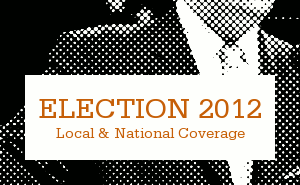Pittsburgh City Council voted unanimously Tuesday to support seven Pennsylvania municipalities that are suing the state over Marcellus Shale drilling legislation passed earlier this year.
In the Will of Council document, Council President Darlene Harris argued that Act 13 of 2012 is illegal because it infringes on local zoning rights protected by the state and federal constitutions.
Harris said the bill would require any local government that receives impact fee revenue to allow gas drillers to set up infrastructure in all types of zones, except densely populated areas.
She accused state legislators of succumbing to commercial interests.
“The oil and gas industry is engaged in drilling campaign in Pennsylvania, and has unduly influenced state elected officials, enabling them to provide the legislation for a path of least resistance to the riches that lie beneath the Commonwealth,” wrote Harris.
The comments were echoed by Councilwoman Natalia Rudiak, who said she thinks the preemption of local zoning law is especially troubling because it only applies to a specific industry.
“Can you imagine if the state put out a piece of legislation that created a standard zoning law for adult entertainment, or for landfills, or for nuclear waste? To say that you could have a landfill 300 feet from your school, and if you didn’t, then guess what — you’re cut off?” said Rudiak.
Councilwoman Rudiak had further criticism for Act 13, saying the $50,000 impact fee assessed on most gas wells is far too low.
“These fees that we’re getting, we’re actually not even using it to regulate the impacts of drilling, the environmental impacts. We’re using it to patch other holes in the state budget,” said Rudiak. “Some of the money is going into what’s called a Marcellus Shale Legacy Fund. That’s actually practically giving some givebacks to the industry, like buying natural gas vehicles and using the money for tax breaks.”
Seven municipalities from Allegheny, Bucks, and Washington Counties are suing the state government in Commonwealth Court. The plaintiffs also want an injunction to block Act 13 from taking effect on April 14.





